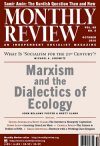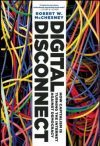2016

On August 29, in a historic moment in the history of the planet, the 35-member Anthropocene Working Group (AWG) reported to the International Geological Congress that the Anthropocene epoch in geological history is “stratigraphically real” and should be dated as arising around 1950, displacing the Holocene epoch of the last 12,000 years. The AWG has yet to arrive at a formal decision that would adopt a definite global “signal” (though ten of the thirty-five members currently support using fallout radionuclides from atomic weapons testing as the signal), which would be followed by the designation of a “golden spike” or actual location in the rock, sediment, or ice strata. Yet the general parameters of the onset of the new epoch are clear.… As Colin Waters, secretary of the AWG, explained: “Being able to pinpoint an interval of time is saying something about how we have had an incredible impact on the environment of our planet. The concept of the Anthropocene manages to pull all these ideas of environmental change together.” Most importantly, it tells us that the world economy has generated an anthropogenic rift in the Earth system threatening millions of species, including our own, requiring fundamental changes in the way in which society relates to the earth through production. | more…
The recovery of the ecological-materialist foundations of Karl Marx’s thought, as embodied in his theory of metabolic rift, is redefining both Marxism and ecology in our time, reintegrating the critique of capital with critical natural science. This may seem astonishing to those who were reared on the view that Marx’s ideas were simply a synthesis of German idealism, French utopian socialism, and British political economy.… The rediscovery of Marx’s metabolism and ecological value-form theories, and of their role in the analysis of ecological crises, has generated sharply discordant trends. Despite their importance in the development of both Marxism and ecology, neither idea is without its critics. One manifestation of the divergence on the left in this respect has been an attempt to appropriate aspects of Marx’s social-metabolism analysis in order to promote a crude social “monist” view based on such notions as the social “production of nature” and capitalism’s “singular metabolism.” Such perspectives, though influenced by Marxism, rely on idealist, postmodernist, and hyper-social-constructivist conceptions, which go against any meaningful historical-materialist ecology and tend to downplay (or to dismiss as apocalyptic or catastrophist) all ecological crises—insofar as they are not reducible to the narrow law of value of the system. | more…
The political chaos that has recently dominated the scene in the Middle East is expressed, among other ways, by the violent resurgence of the Kurdish question. How can we analyze, in these new conditions, the scope of the claims of the Kurds—autonomy, independence, unity? And can we deduce from analysis that this claim must be supported by all democratic and progressive forces, in the region and in the world?… Debates on the subject produce great confusion. This is because most contemporary actors and observers rally around a non-historical vision of this and related issues.… I will offer a counterpoint to this transhistorical vision of social issues and “rights,” through which the social movements of the past and present express their demands. In particular, I will attribute paramount importance to the divide that separates the thriving of the modern capitalist world from past worlds. | more…
Often the best way to begin to understand something is to consider what it is not. Socialism for the twenty-first century is not a society in which people sell their ability to work and are directed from above by others whose goal is profits rather than the satisfaction of human needs. It is not a society where the owners of the means of production benefit by dividing workers and communities in order to drive down wages and intensify work…. Nor is it a statist society where decisions are top-down and where all initiative is the property of state office-holders or cadres of self-reproducing vanguards.… Also, socialism for the twenty-first century is not populism.… Further, socialism for the twenty-first century is not totalitarianism.… [S]ocialism for the twenty-first century does not dictate personal belief…. Nor does socialism for the twenty-first century worship technology and productive forces…. Finally, contrary to its self-proclaimed inventor (Heinz Dieterich), socialism for the twenty-first century is not “essentially a problem of informatic complexity” that requires cybernetic calculation of quantities of concrete labor as the basis for an exchange of equivalents.&hellp; So, let us explain what socialism for the twenty-first century is. | more…

Robert W. McChesney, Digital Disconnect: How Capitalism Is Turning the Internet against Democracy (New York: New Press, 2013), 299 pages, $27.95, hardcover.
Without question, the Internet has had a profound influence on the world. As with most technologies, debates rage over whether this development has been positive or negative. Celebrants proclaim with utopian fervor that a new age of democracy has arrived, allowing for decentralized communication, challenges to corporate control, and mass public participation in the most important decisions confronting humanity. Skeptics point to the ways the Internet has spread ignorance and misinformation instead of knowledge, undermined the ability of artists to earn a living, and exacerbated isolation, unhappiness, and alienation. While these arguments illuminate the potential benefits and drawbacks of the Internet, they tend to ignore or disregard the larger political economy within which the Internet exists. In Digital Disconnect: How Capitalism Is Turning the Internet against Democracy, Robert W. McChesney transcends these one-sided engagements, offering a nuanced analysis of the development of the Internet within the context of monopoly capitalism, revealing both the limitations of this technology in its current state and its massive potential. | more…

Kevin B. Anderson, Marx at the Margins: On Nationalism, Ethnicity and Non-Western Societies, expanded edition (Chicago: University of Chicago Press, 2016), 344 pages, $25, paperback.
Recent years have seen the development of a fresh area of research into Marx’s critique of political economy, based on his previously unpublished economic manuscripts and notebooks, which have been made newly available in the updated edition of the complete works of Marx and Engels, the Marx-Engels-Gesamtausgabe (MEGA). Lucia Pradella published the first detailed analysis in English of Marx’s London Notebooks, and Brill’s Historical Materialism book series recently celebrated its hundredth volume with a translation of Marx’s original manuscript for volume 3 of Capital, based on the new MEGA edition. The same series also published Heather Brown’s Marx on Gender, which drew extensively on his late notebooks. And earlier this year, the second, expanded edition of Kevin Anderson’s Marx at the Margins: On Nationalism, Ethnicity and Non-Western Societies appeared. The first edition of Anderson’s book, published in 2010, inaugurated this new trend in Marxist studies, and it remains among the most important achievements in the field. | more…

John Parrington, The Deeper Genome (Oxford: Oxford University Press, 2015), 272 pages, $19.95, paperback.
John Parrington’s book The Deeper Genome breaks new ground in establishing a materialist understanding of how the genome works. Most popular science books on genetics have dealt with the genetic code, focusing on the information contained in our genes and the physical or personality traits this information might “code for.” Parrington instead turns his attention to the molecules that form our genomes, uncovering new research and assessing its implications for the way we think about genetics. | more…

Timothy Sheard, the Lenny Moss mystery series (New York: Hardball).
At its best, the art of fiction reveals the underlying truth of human relations: we are communal and collaborative by nature. Selfishness and greed are social aberrations because, ultimately, they violate the principle of self-preservation. No wonder we are drawn to crime stories: they mirror our common experience. Capitalism is high crime disguised as church doctrine. Conspiracy is evident, though the evidence is concealed. Hence, our fascination with the detective genre. We are in dire need of Timothy Sheard’s scrutiny—a detective who peers through a working-class eyeglass. | more…

On July 14, 2016, Cornel West, a Monthly Review contributor and Monthly Review Press author (his 1991 book The Ethical Dimensions of Marxist Thought remains in print) issued a historic statement in the Guardian, under the headline “Obama Has Failed Victims of Racism and Police Brutality.” West wrote:
A long and deep legacy of white supremacy has always arrested the development of US democracy. We either hit it head on, or it comes back to haunt us…. I have deep empathy for brothers and sisters who are shot in the police force. I also have profound empathy for people of color who are shot by the police. I have always believed deliberate killing to be a crime against humanity. Yet, Obama didn’t go to Baton Rouge. He didn’t go to Minneapolis. He flew over their heads to go to Dallas. You can’t do that. His fundamental concern was to speak to the police, that was his priority. When he references the Black Lives Matter movement, it’s to speak to the police. But the people who are struggling have a different perspective….
In late April 2016, at a town hall-style event in London, President Obama complained about the rising movement against the state-sanctioned murder of black people often referred to as Black Lives Matter. Activists, he admonished, should “stop yelling” and instead push for incremental change through the official “process.”… The spectacle of the first black president scolding black activists in the context of a rising rate of police murder (as of this writing, the police have killed 630 individuals, at least 155 of them black, nationwide in 2016) speaks volumes about the state of black politics today.… For those trying to understand the emergence of a new black movement—or, perhaps more accurately, a new phase of a longer, older movement—on the watch of the first black president, Keeanga-Yamahtta Taylor’s new book, From #BlackLivesMatter to Black Liberation is an essential starting point. | more…
The Anthropocene, viewed as a new geological epoch displacing the Holocene epoch of the last 10,000 to 12,000 years, represents what has been called an “anthropogenic rift” in the history of the planet.… Recent scientific evidence suggests that the period from around 1950 on exhibits a major spike, marking a Great Acceleration in human impacts on the environment, with the most dramatic stratigraphic trace of the anthropogenic rift to be found in fallout radionuclides from nuclear weapons testing.… Viewed in this way, the Anthropocene can be seen as corresponding roughly to the rise of the modern environmental movement, which had its beginnings in the protests led by scientists against above-ground nuclear testing after the Second World War, and was to emerge as a wider movement following the publication of Rachel Carson’s Silent Spring in 1962. Carson’s book was soon followed in the 1960s by the very first warnings, by Soviet and U.S. scientists, of accelerated and irreversible global warming. It is this dialectical interrelation between the acceleration into the Anthropocene and the acceleration of a radical environmentalist imperative in response that constitutes the central theme of Ian Angus’s marvelous new book. | more…
A Marxian-Leopoldian Critique
Contemporary North Americans hunt wildlife for a variety of reasons, whether to attain game meat, spend time with family and friends, or take part in a form of outdoor recreation. My focus here will be on…trophy hunting…[—]killing wildlife to enhance one’s status by appropriating the body parts of dead animals for display as trophies, ostensible evidence of hunting skills.… In the United States, trophy hunting organizations, such as Safari Club International and Sportsmen for Fish and Wildlife, claim to promote and defend two allegedly deeply rooted Western traditions: The popular practice of “common people” hunting, and the role that hunters and hunting organizations have played in protecting wilderness and wildlife.… These claims perpetuate a mythologized version of the history of Euro-American hunting. Contrary to their image as “true conservationists,” many trophy hunting organizations have promoted policies and activities with adverse social consequences, contributing to the environmental degradation they claim to oppose. | more…
Unlike materially grounded and strictly determined primitive equality, the realization of universally shared substantive equality is feasible only at a highly developed level of social/economic advancement that must be combined with the consciously pursued non-hierarchical (and thereby non-antagonistic) regulation of a historically sustainable social reproductive metabolism. That would be a radically different social metabolism, in contrast to all phases of historical development hitherto—including of course the spontaneous primitive equality of the distant past rooted in the grave material constraints of directly imposed natural necessity and struggle for survival.… “Materiality” of that kind, despite its unquestionable substantiveness, as linked to the corresponding hemmed-in “spontaneity,” is obviously not enough in order to achieve historical sustainability.… The requirement of materiality, in the case of the human being whose fundamental existential substratum is objectively determined nature, is essential. The seminal condition of materiality with regard to equality can be swept aside or wished out of existence—as a rule in a revealingly discriminatory and class-bound self-serving way—only by some idealist philosophical conception; one that predicates the commendability of some kind of equality (e.g., “in the eyes of God” or “before the Law”) and at the same time denies the realizability of materially embodied substantive equality, in its defense of a most iniquitous social order. | more…





